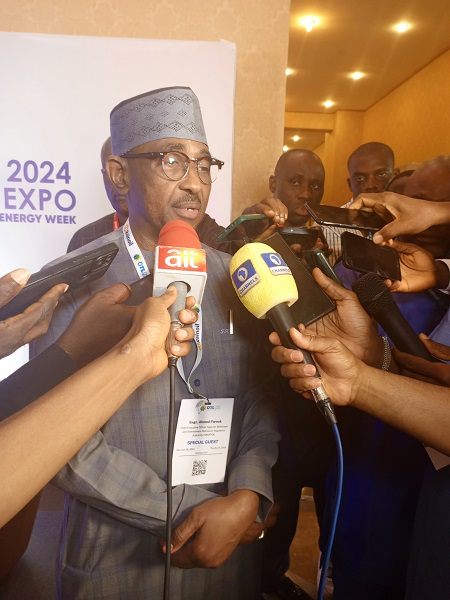Engr. Ahmed Farouk, ACE NMDPRA
-Felix Douglas
The Chief Executive Officer of the Nigerian Midstream and Downstream Petroleum Regulatory Authority (NMDPRA) Engr. Ahmed Farouk has said that the Nigeria’s downstream oil and gas sector has been transformed into an attractive investment destination through recent bold reforms introduced by the government. With policy support from President’s Special Advisors on Energy and the Honourable Ministers for Petroleum Resources, the Nigerian oil industry is set to achieve ambitious targets: a daily crude oil production rate of 3 million barrels, increased domestic gas utilization to 10 billion standard cubic feet per day (BSCF/D), and expanded refining capacity that will position Nigeria as a net exporter of petroleum products.
Farouk explained that NMDPRA so far has shown significant progress in the last one year, with notable reforms aimed at streamlining regulatory frameworks and enhancing ease of compliance. “NMDPRA has revised regulations through strategic stakeholder engagement, and we are automating processes to enhance clarity and compliance,” Farouk said.
He pointed out that NMDPRA had announced! the approval of multiple licenses for refineries, notably is the Dangote Petroleum Refinery, which began producing select petroleum products earlier this year and recently added premium motor spirit (PMS) to its output.
According to Farouk the Nigeria’s gas sector is also seeing robust growth, boasting 16 BSCF/D in licensed processing capacity, 5 BSCF/D in transportation, and 1.5 BSCF/D in distribution. NMDPRA he maintained is working to support this growth through quality assurance, regulatory support, and initiatives like the Decade of Gas program.
Speaking at the ongoing African Oil Trading Logistics (OTL) conference, in Lagos, themed “Alliances for Growth – Markets, Operations and Policy,” Farouk emphasized the need for partnerships. He called for increased regional collaborations to strengthen trade and optimize resource-sharing. Future initiatives include establishing a uniform gas transportation code and a pan-African Energy Regulators Association to streamline policies across the continent. He commended the planned setting up of the Africa Energy Bank in Nigeria, aimed at financing energy infrastructure and supporting a just energy transition.
In support of Nigeria’s transition to a more sustainable energy landscape, he said that NMDPRA is promoting Compressed Natural Gas (CNG) as an alternative vehicle fuel and incentivizing infrastructure expansion for CNG refueling stations. The Authority boss also reaffirmed the commitment to energy security and affordability, particularly in making cooking gas accessible for Nigerian households.
Farouk maintained that as Nigeria aims to industrialize, improve its energy infrastructure, and ensure sustainable development, the downstream oil and gas sector remains a top priority, promising economic growth and stability for years to come.


Comment here